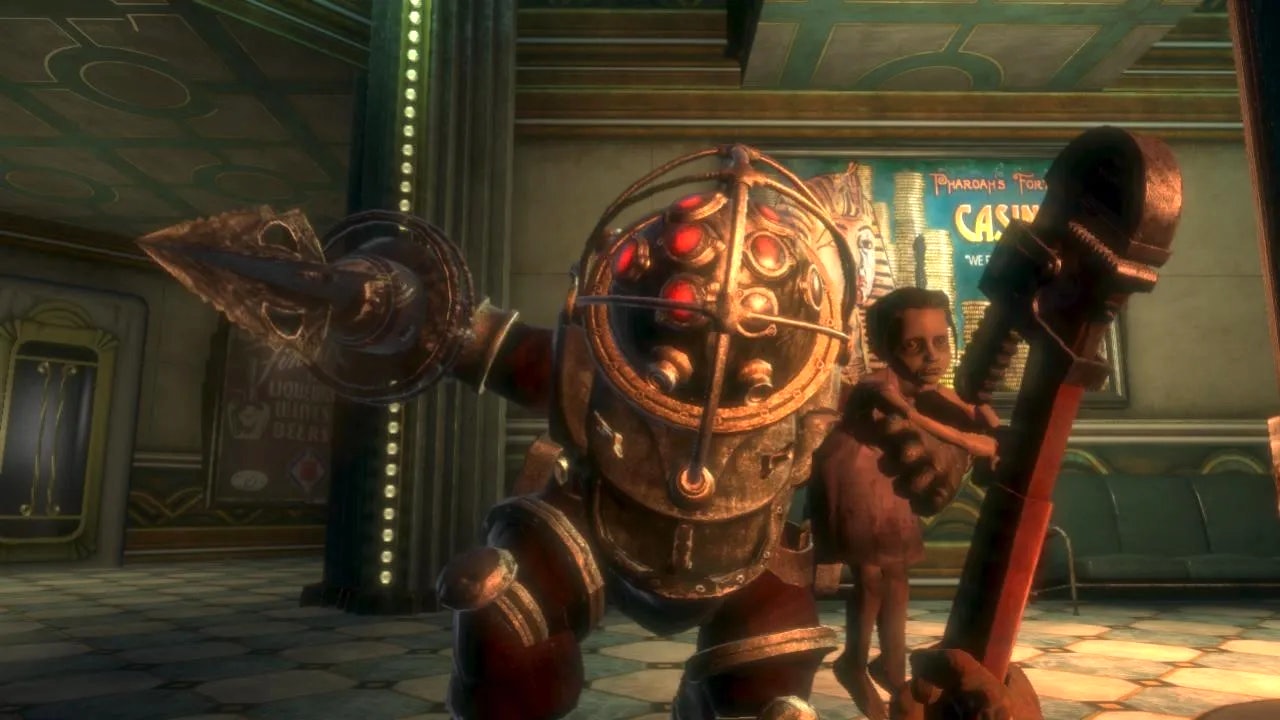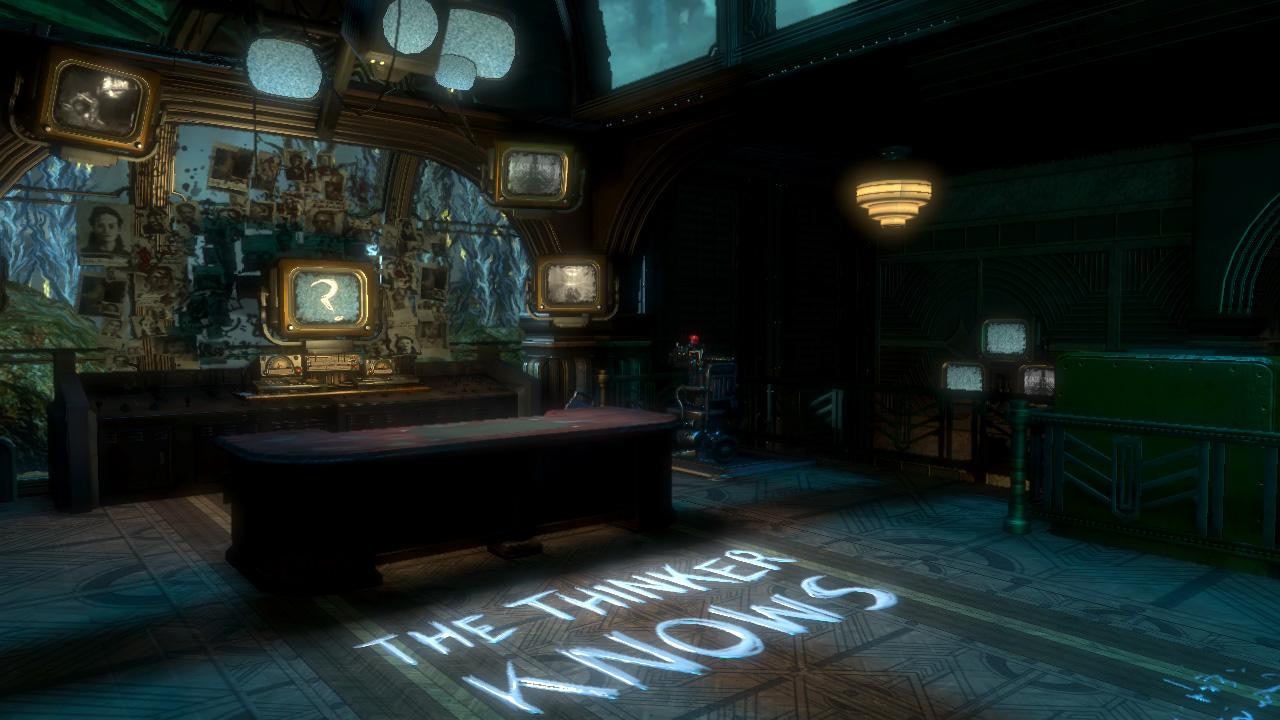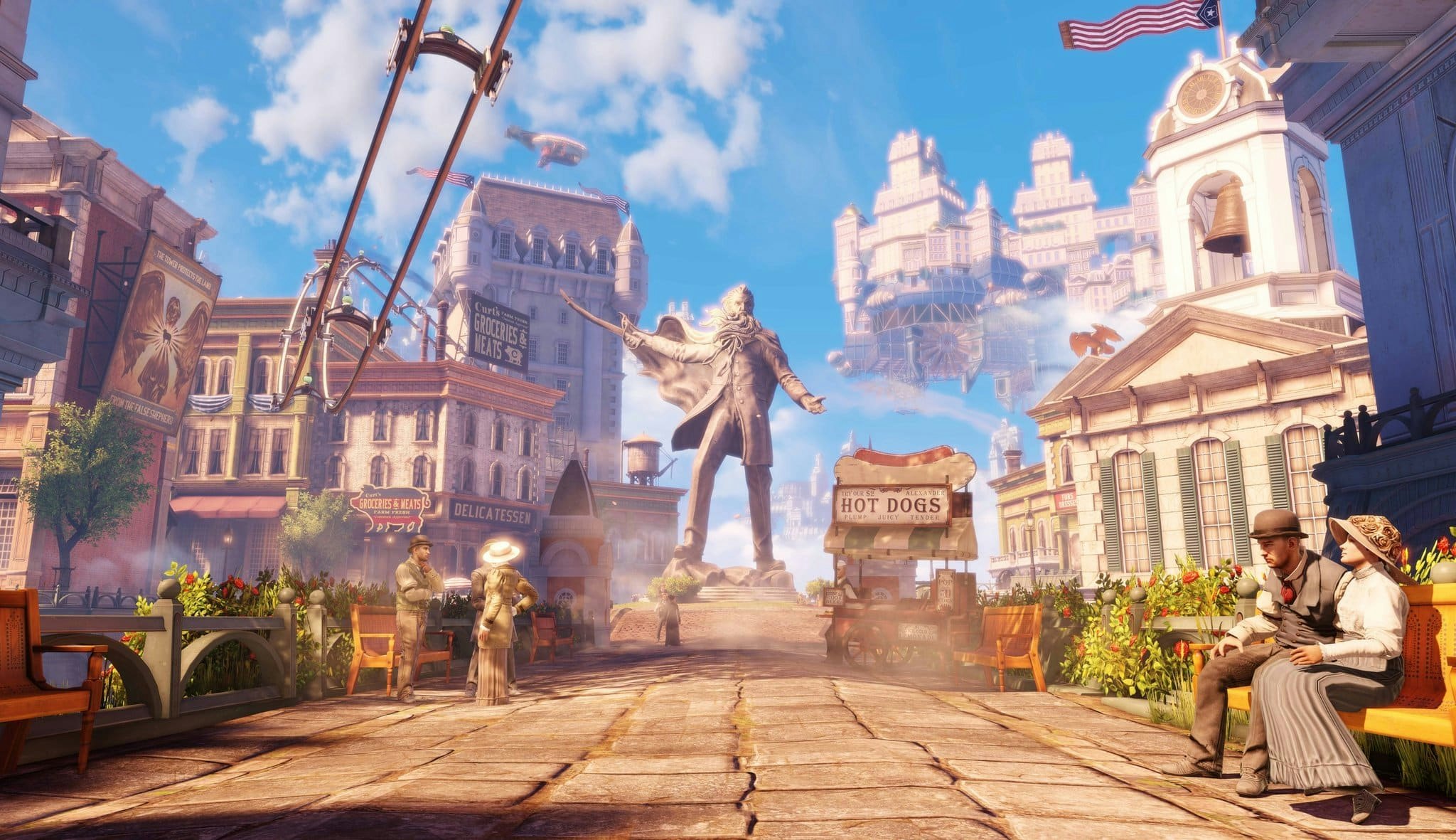
There’s a short list of games that come to mind when you think of the most influential titles ever released, and BioShock easily sits near the top of that list. First released in 2007, BioShock has gone on to inspire countless games, and turned into one of the greatest trilogies gaming has ever seen. There’s never been a better time to jump into the BioShock: The Collection (currently free on Epic Games Store), whether you’ve never played any of the games or played them all multiple times.
The first BioShock was the perfect storm of elements, in terms of gameplay, presentation, story, everything. The underwater city of Rapture became one of the most immersive locations in gaming within moments, as splicers cry in agony and Big Daddies stalk the flooded corridors. BioShock puts a lot of emphasis on player choice, but what’s so brilliant about the game is that’s simply the illusion of choice.
As you explore the streets of Rapture you’re in constant contact with a variety of characters, including the egomaniacal founder of the city Adam Ryan and a charismatic con-man named Frank Fontaine. The city of Rapture is a paradise gone wrong, and exploring that fallen paradise never gets old.

What’s most interesting about BioShock’s story is how it constantly challenges your perceptions, asking you to consider alternate viewpoints and ideas. BioShock isn’t just there to tell a good story, it’s there to challenge you and pique your curiosity. The game’s Ayn Rand inspirations shine through clear as day, but it manages to take those inspirations and turn them into something unique.
Outside of the innovations of BioShock’s storytelling, it’s also a surprisingly competent shooter mechanically. It may not be as smooth to control as something like Call of Duty, but BioShock puts a brilliant twist on the genre with its Plasmid powers, and how those powers interact with the environment. Then, of course, there’s the iconic Big Daddy, that’s utterly terrifying to go up against. No BioShock fan will forget the first time they faced down one of the hulking monstrosities.
The original BioShock helped redefine storytelling in video games, but the second game doesn’t get nearly the same recognition, despite deserving it. BioShock 2 doesn’t innovate much in terms of gameplay but helps refine the gameplay to a nice sheen that can match the ambition of the narrative. The game also wants to tell a wholly different story from the first, focusing on specific characters and their relationships, instead of a larger view of the Rapture and its philosophy. BioShock 2 may not ask the “big questions” the first game did, but it manages to be much more emotionally resonant.

What’s really worth diving into in The Collection, however, is BioShock 2’s Minerva’s Den DLC. Possibly the best piece of BioShock content ever created, Minerva’s Den takes all of the gameplay systems from the first two games and compresses them into a smaller environment that encourages you to think creatively. At the same time, Minerva's Den tells a self-contained story filled with heart and fascinating characters, representing the ideals of the series in a fascinating new way.
Of course, there’s a third major aspect to the BioShock Collection, even if it may not have aged as well as the first two games. BioShock Infinite presents players with a dynamic new location to explore in the floating city of Columbia, as well as a pair of new protagonists. Infinite’s biggest problem is its story, which tries to grapple with weighty themes like racism, but lacks the self-awareness to do it properly. The emotional connection between its main characters, Elizabeth and Booker, is well done, but the narrative gets buried underneath its own themes.
The same can be said for Infinite’s combat, which is easily the “best-feeling” of the franchise but loses a lot of freedom and experimentation of the first two games. It’s clear that Infinite was trying to fall more in line with the typical idea of a shooter, and it loses a bit of the spark because of it.

Still, what you do get with Infinite is an utterly gorgeous world ripe for exploration, along with some truly pulse-pounding combat encounters. As the years have gone on it’s become more apparent that Infinite is the weakest BioShock game, but it’s still an experience well worth taking.
While each BioShock game is great in its own right, it’s interesting to play all three to see how the franchise has grown and evolved over the years. BioShock’s influence can be seen to this day in games like 2017’s Prey, and the creators of HBO’s Westworld have even been vocal about how the game inspired them. It’s simply one of those games that everyone should experience sooner or later.
BioShock: The Collection is free to permanently claim via the Epic Games Store on PC until Thursday, June 2 at 11 a.m. Eastern.







